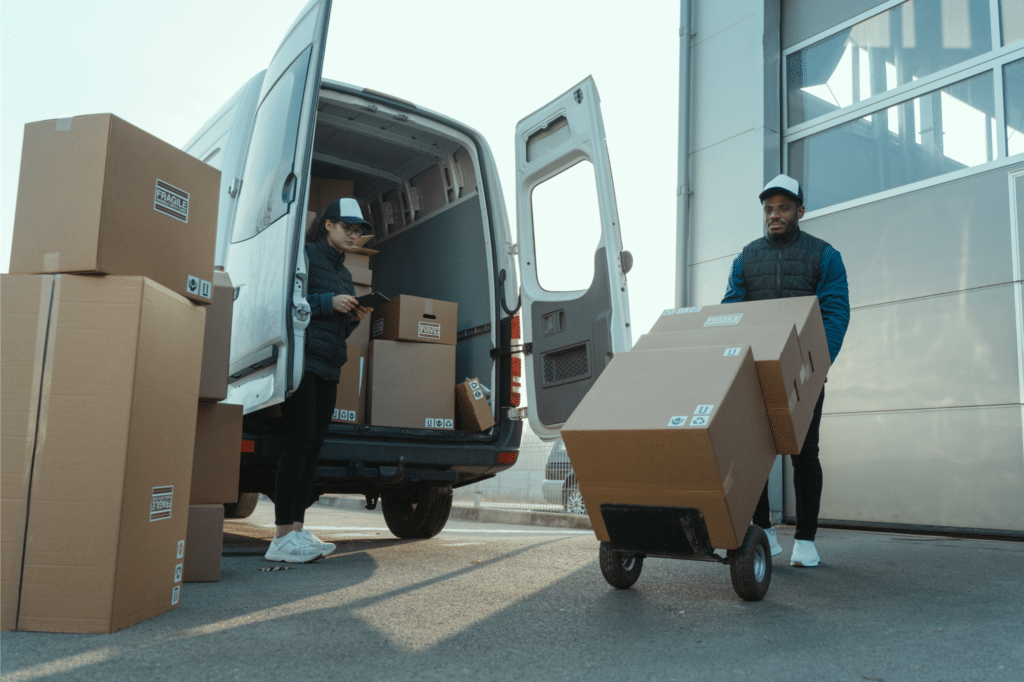
If you type “reverse logistics” into a search engine, you’ll actually see two different types of results. Some people use this term for the process of managing customer returns or defective goods. However, reverse logistics may also refer to managing recalled products, recyclables, capital assets, and expired products.
Reverse logistics can be expensive, so many companies avoid handling them. However, companies that implement a cohesive reverse logistic policy experience the benefits, including reduced storage costs, a sustainable supply chain, an improved brand image, and satisfied customers.
Is it time to employ reverse logistics at your company? Read on to learn more about the benefits and how you can implement a reverse logistics plan today.
What Is Reverse Logistics?
Logistics, also known as forwarding logistics, occurs when a supplier delivers goods to customers. In contrast, reverse logistics occurs when customers return goods following the delivery. This becomes important when customers receive goods that fail to meet their standards, or the products reach the end of their lifecycle after receiving them — for instance, returning outdated electronics to the manufacturer for decommissioning.
Reverse logistics are responsible for every operation related to the reuse of products and materials, which may include the reclamation of raw materials, recycling, and reselling these items. Essentially, reverse logistics is a form of logistics that focuses on cost reduction, value recovery, and fostering an efficient supply chain.
Reverse logistics incorporates multiple processes, including return management, repair and recycling, repurposing, refurbishing, and liquidation. Common examples of reverse logistics include the following:
- When customers return a newly purchased item to the retail for replacement or repair
- When a distributor returns expired items to the manufacturer
- Collecting hazardous waste from a customer
Ultimately, reverse logistics allows companies to become environmentally efficient by recycling, reducing, and reusing their materials. Many people confuse waste management with reverse logistics, but the difference is that reverse logistics emphasizes recovering any value that the product has.
Is a Reverse Logistics Policy Worth It?
In the modern world, reverse logistics are growing in importance. Not only do these practices increase savings from salvaged materials, but they also improve the state of the natural environment by conserving resources. This is especially true for electronics — the proliferation of e-waste is a growing concern to both our planet and your bottom line.
Companies that implement a cohesive reverse logistics plan may experience benefits such as the following:
- Reduce Your Environmental Impact. Reusing materials during the manufacturing process allows companies to reduce the misuse of raw materials and use less power. The results of a smaller ecological impact benefit every sector of society.
- Improves Your Corporate Image. These days, customers are interested in working with companies that actively attend to environmental problems when companies express their commitment to environmental protection through the use of initiatives like recycling or reverse logistics programs.
- Reduce Operating Expenses. A well-planned reverse logistics strategy may allow your company to reduce operating costs in several ways, including quality assurance, tech support, transportation, and waste disposal. Your end-of-year profit will improve as you earn value from recycled or resold items and your company is operating effectively.
- Reduce Risks. The right reverse logistics process will improve and reduce the chance that your company will experience the risks associated with indiscriminate waste disposal, such as compliance issues, fines, and data vulnerabilities.
If the manufacturers of your goods — and, specifically, your electronics — are able to accommodate your reverse logistics needs, this kind of management can significantly improve your organization’s overall profitability while upholding a favorable reputation. But there is one significant roadblock: not all companies have comprehensive reverse logistics programs. So if your needs don’t fall within their capabilities, what should you do with your unneeded electronics?








